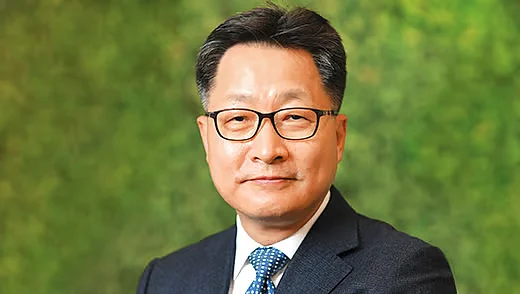
Government’s GST overhaul reduces tax burden on essential goods, laying foundation for inclusive growth and a consumption-led economy.
Reform expected to energise the automotive sector, aligned with Make in India, boosting domestic manufacturing and demand in both urban and rural markets.
Optimism expressed about a festive season demand surge and sustained short- and long-term growth.
India is at a defining mobility transition — from value-conscious to value-driven, focusing on technology, sustainability, and safety.
The government has laid the foundation for inclusive growth and a consumption-led economy by reducing the tax burden on essential goods, Hyundai Motor India Managing Director Unsoo Kim said on Thursday.
Addressing the 65th annual convention of Society of Indian Automobile Manufacturers (SIAM), he said the GST overhaul will further energise the automotive sector, aligning seamlessly with the Make in India vision.
Welcoming the "landmark GST reforms", Kim said, "This historic initiative marks a pivotal step in our collective aspiration to build a Viksit Bharat." He further said, "By reducing the tax burden on essential goods, the government has laid the foundation for inclusive growth and a consumption-led economy." The GST overhaul will further energise the automotive sector, aligning seamlessly with the Make in India vision, by encouraging domestic manufacturing and stimulating demand across both urban and rural markets, Kim added.
He expressed optimism "about a surge in consumer sentiment during the upcoming festive season, and an overall growth in both short term and long term".
Kim also noted that India stands at a defining moment in its mobility journey -- transitioning from value-conscious to value-driven, and embracing a customer mindset rooted in technology, sustainability, and safety.
This transformation is being propelled by progressive government policies and a shared resolve to make mobility inclusive, future-ready, and environmentally responsible, he added.
"India is not only one of the largest automotive markets globally, but also a hub of innovation, manufacturing excellence, and unmatched talent," Kim said.
Noting that the global mobility landscape is undergoing a profound transformation, he said, "Across continents, the pursuit of sustainable, clean, and connected transportation ecosystems is reshaping how humanity moves." Electrification, hydrogen propulsion, digital integration, and artificial intelligence are redefining the very essence of mobility.
"The transition to green energy demands significant investment, and the urgency of climate action calls for coordinated, decisive efforts," Kim said.
As a cornerstone of economic growth and social development, Kim said, "The automotive industry must rise to this challenge." Asserting that India occupies a unique and strategic position in the global transformation, he said, "Under the Make in India and Atmanirbhar Bharat frameworks, the automotive sector is emerging as a key driver of self-reliance and global competitiveness." Through a synergy of world-class technology and indigenous engineering talent, India is becoming a global hub for innovation and advanced manufacturing, he added.
Kim also pointed out the vast potential for collaboration and said India has the scale, skills, and the spirit to co-develop solutions with global partners -- solutions that are made in India, for India, and for the world.































